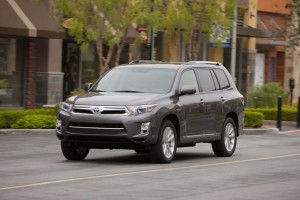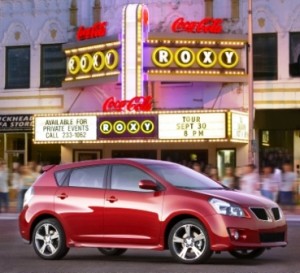In one of the largest announcements in several years of major safety-related news, Toyota Motor Co. is recalling nearly 6.4 million vehicles for a variety of problems worldwide.
Some of the vehicles are actually covered by more than one recall, and the announcement also impacts products sold by two other makers – Subaru and General Motors — that were produced by Toyota. Adding the Subaru Trezia and Pontiac Vibe to the list brings the total number of vehicles involved in the recall to 6.76 million worldwide.
Toyota says it has no reports of crashes or injuries related to any of the recalls – though it did note two fires linked to one problem, a defective engine starter that can keep a motor running even if the motorist wants to shut the vehicle off. That is not related to the defective engine switch problem that has led GM to recall more than 2.5 million vehicles since mid-February.
As large as the latest recall is, it is dwarfed by the more than 10 million vehicles Toyota recalled for problems related to so-called unintended acceleration. But that actually involved a series of related service actions that took place in late 2009 and 2010. The current announcement is among the largest ever announced at one time, albeit combining a variety of different problems together.
All told, 6.39 million vehicles bearing the Toyota badge and involving 27 of the maker’s nameplates will be recalled in the U.S., Europe, Japan and other markets.
(Separate, earlier airbag recall covers over 100,000 Toyota Avalon sedans. Click Here for more.)
The problems include not only the faulty engine starter but seat rails, a bracket holding the steering column, windshield wiper motors, and a cable attached to an airbag module. The latter problem affects the Pontiac Vibe and Subaru Trezia models, as well as various Toyota products.
Among the Toyota models involved in the recall are such popular product lines as the RAV4, Corolla, Yaris, Matrix and Highlander. The vehicles were all produced between April 2004 and August 2013.
The widespread use of components in various different vehicles has been linked to the recent growth in the size of many recalls. Manufacturers often try to improve so-called economies of scale by sharing underlying parts, such as an airbag module or windshield wiper. But in a situation where those components prove defective, significant numbers of vehicles can be impacted.
(Facing tough competition, Toyota planning major update to Camry. Click Herefor the story.)
That was the case for Toyota when it had to recall millions of vehicles for a potentially sticky accelerator pedal in 2010 – and with General Motors which utilized the same ignition switch in millions of its compact sedans and other models. That defective switch has been linked to 31 crashes and 13 deaths.
The huge Toyota unintended acceleration flap – which led to a serious of federal hearings and a Justice Department probe – appears to also have encouraged the maker to be more cautious about how it handles potential safety issues. Among other things, Toyota now has a safety czar empowered to order recalls on problems that might, in the past, have been downplayed.
Last month, the maker reached a settlement with the U.S. Justice Department that will cost it $1.2 billion and leave it on probation for three years. It had previously paid $66 billion in fines for its handling of the unintended acceleration problem. But Toyota was also cleared by a series of investigations looking into whether the maker’s vehicles might suffer from additional problems with its electronic engine control systems.
That settlement is considered by many experts likely to be used as a model for any future settlement between GM and the Justice Dept. over the ignition switch scandal.
(Toyota workers in Canada may join union. Click Here for details.)



This does not surprise me at all. With the complexity of modern vehicles recalls will become an everyday experience.